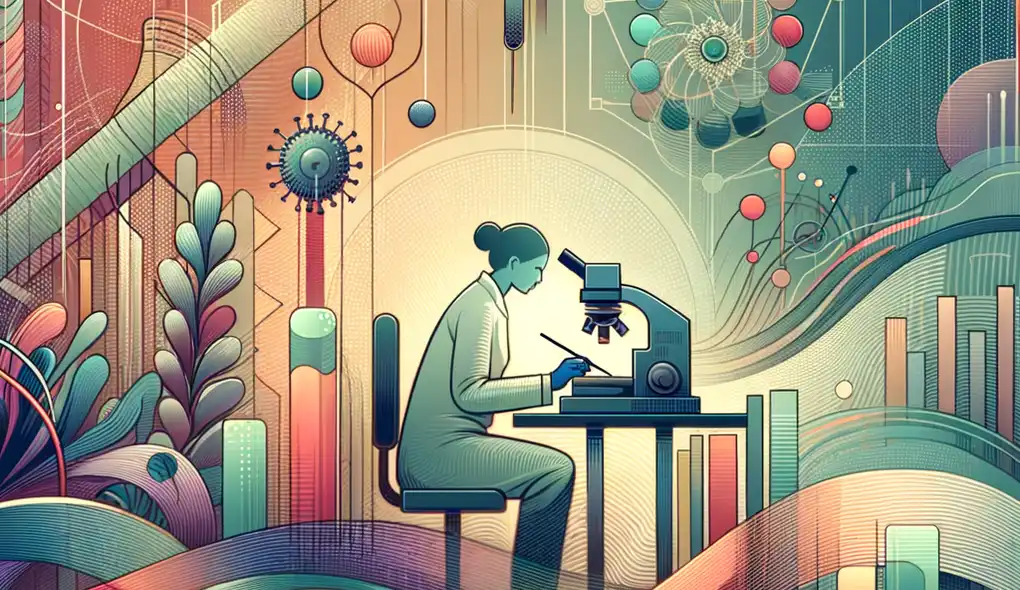How do you communicate complex scientific concepts and findings to non-technical stakeholders?
Microarray Analyst Interview Questions
Sample answer to the question
When communicating complex scientific concepts and findings to non-technical stakeholders, I make sure to use plain language and avoid jargon. I start by understanding their background knowledge and tailor my explanation accordingly. To make the concepts more relatable, I use real-world examples, analogies, and visual aids such as infographics or charts. I also emphasize the practical implications and benefits of the scientific findings. Additionally, I encourage questions and create an open and supportive environment where stakeholders feel comfortable asking for clarification. Overall, my goal is to bridge the gap between technical and non-technical individuals by making the information understandable and engaging.
A more solid answer
In my role as a Senior Microarray Analyst, I have successfully communicated complex scientific concepts and findings to non-technical stakeholders. For example, when presenting gene expression data to a group of marketing executives, I focused on the potential impact on product development and market trends. I used visual aids, such as heatmaps and scatter plots, to illustrate the patterns and differences in gene expression. I explained the significance of the findings in simple terms, relating them to disease diagnosis and treatment options. I also welcomed questions and facilitated an open discussion to ensure understanding. By tailoring the communication to their interests and needs, I was able to effectively convey the scientific information to the stakeholders.
Why this is a more solid answer:
The solid answer expands on the basic answer by providing specific examples of the candidate's experience in communicating complex scientific concepts to non-technical stakeholders. It demonstrates their ability to use visual aids and relate the information to real-world applications. However, it could further improve by discussing how the candidate ensures the accuracy of the information and effectively addresses any potential misconceptions or concerns raised by the stakeholders.
An exceptional answer
As a Senior Microarray Analyst with a Ph.D. in Bioinformatics, I have extensive experience communicating complex scientific concepts to non-technical stakeholders. In a recent project, I was tasked with presenting the results of a genotyping analysis to a group of investors. Knowing their background in finance, I first explained the importance of genotyping for personalized medicine and its potential implications for the pharmaceutical industry. To enhance their understanding, I created a customized presentation with interactive visualizations, allowing them to explore the data themselves. I also prepared a concise summary document outlining the key findings and their potential financial impact. During the presentation, I welcomed questions and engaged in a constructive dialogue to address any concerns or uncertainties. By combining my technical expertise with effective communication strategies, I was able to convey the scientific concepts in a compelling and accessible manner, ultimately gaining their support for further research and development.
Why this is an exceptional answer:
The exceptional answer goes above and beyond the solid answer by showcasing the candidate's advanced expertise in the field and their ability to adapt the communication strategy to match the stakeholders' background and interests. It highlights the candidate's use of customized presentations with interactive visualizations and concise summary documents to facilitate understanding. Additionally, it emphasizes the candidate's engagement in a constructive dialogue to address any concerns or uncertainties raised by the stakeholders. This answer establishes the candidate as a highly skilled communicator who can effectively convey complex scientific concepts to non-technical stakeholders in a persuasive and impactful manner.
How to prepare for this question
- Familiarize yourself with the key scientific concepts and findings relevant to the job, such as gene expression analysis and microarray technology.
- Practice explaining complex scientific concepts to someone outside your field, focusing on clarity and simplicity.
- Develop your visual communication skills by creating infographics or charts that visualize scientific data and concepts.
- Stay updated on the latest advancements in microarray technology and bioinformatics to be able to effectively communicate new findings and their implications.
- Consider the background and interests of your audience when preparing and delivering presentations, adapting your communication style and examples to resonate with them.
What interviewers are evaluating
- Communication skills
- Technical knowledge
- Adaptability
- Problem-solving
Related Interview Questions
More questions for Microarray Analyst interviews